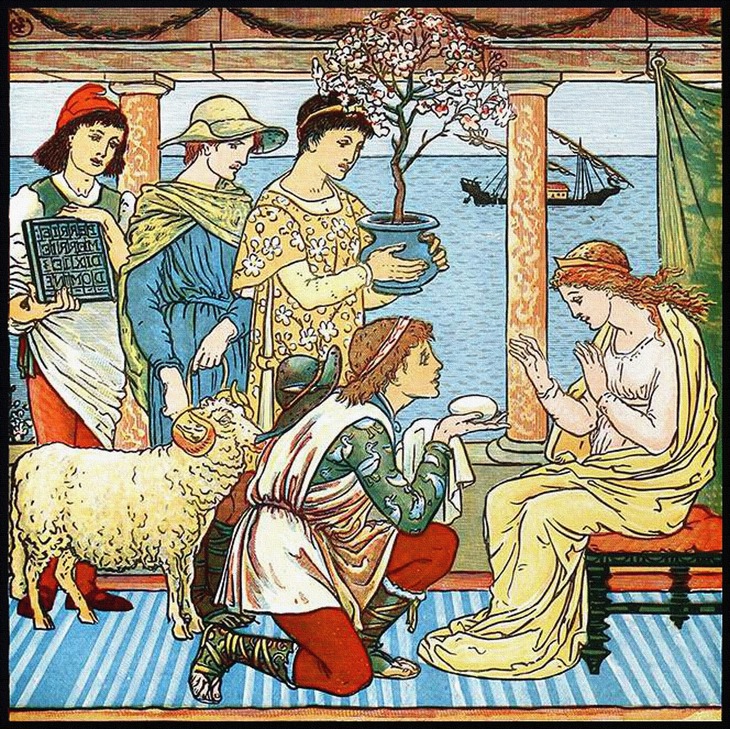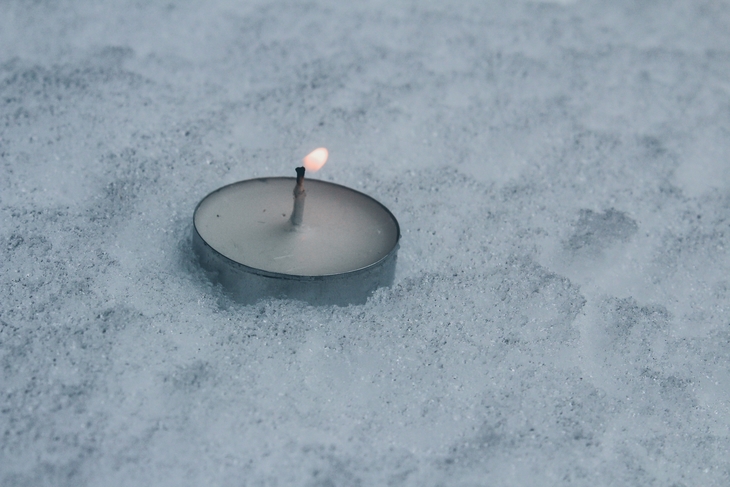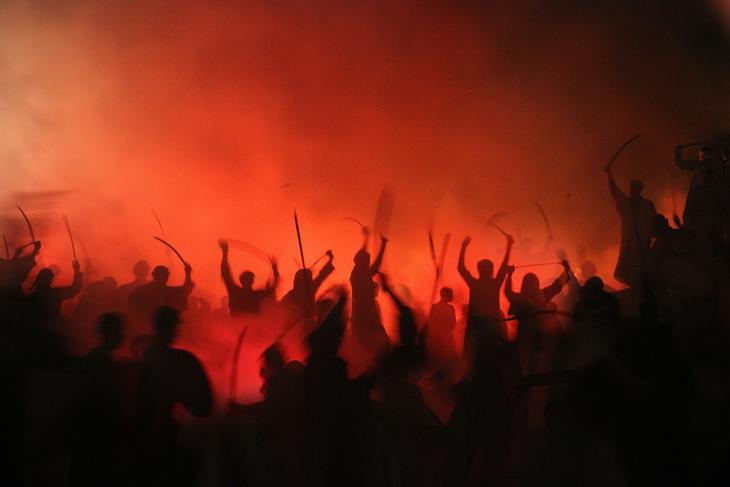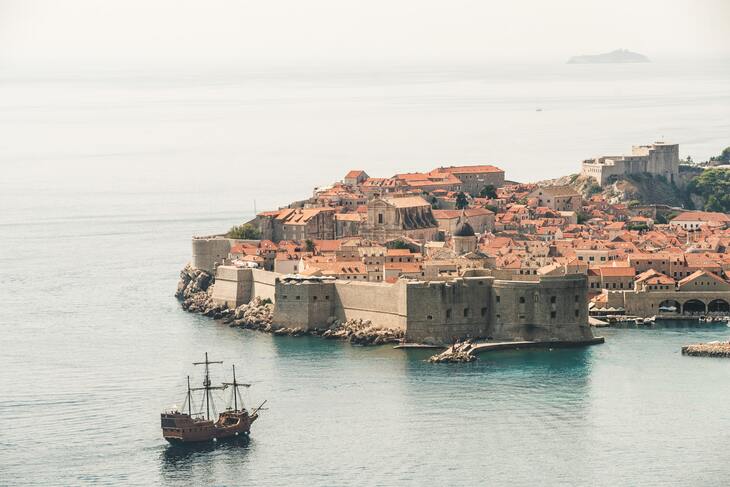An initiation ceremony, purely superficial and utterly in compliance with Denethor’s ego. He could have left it as it was, in their first meeting when Pippin offered his services. Or Denethor could have made it a bit more casual like King Théoden, as Merry offered his sword to him. However, it would appear that Denethor tends to think very highly of himself, above all else, he stands on ceremony.
Denethor vs. Théoden
There is a difference between the two ways Denethor and Théoden go about their rule.
Théoden is much more subtle, although almost as stubborn as Denethor. However, it is less cruel and insulting to those who offer advice or help. Théoden, although broken by grief over his son’s death, made the effort to leave Edoras for Helm’s Deep. He gave his people a chance of survival when facing his enemy head-on. He was still a ruler and still a confident decision-maker, although those decisions might have been thought of as weak.
Denethor, on the other hand, finds joy and purpose in hiding in the Hall of Kings. He is shutting out the world as best as possible, concentrating only on his own well-being. The only things he cares about are his musings about his own rule, his ambitions to remain in power and enhancing the same with the possession of the Ring of Power. With the help of the Palantír, Denethor obtained insight into the future, well, more accurately, his interpretation of the future. He had foreseen his city would come to ruin, but his actions have proven non-existent.
Apart from the garrison at Osgiliath, there was nothing else Denethor himself fought to implement or change in order to protect his people. Naturally, when the garrison fell, he had to place blame on someone other than himself. How would it look if he took responsibility for Osgiliath being overtaken by Orcs? He found his scapegoat in his son Faramir. Since he is the Captain of Gondor, it was his responsibility to ensure Osgiliath’s defenses.
As this inevitably failed due to the overwhelming number of Mordor Orcs overtaking the city, Denethor places blame in Faramir’s hands.
The pledge
Here do I swear fealty and service to Gondor. In peace or war. In living or dying. Fr… from… from… from this hour henceforth, until my lord release me, or death… take me.
Pippin
The words spoken seem too ominous, somehow threatening and forever binding. Pippin is clearly uncomfortable and more than unsure of their delivery. He had a completely different idea of what the offering of his service would entail, therefore this pledge now appears frightening.
While Pippin kneels before his father, Faramir observes the ceremony. His expression conveys pity and sadness over these turn of events. Faramir himself is more casual in his presentation than his father, so this ceremonial representation of loyalty is more than unnecessary in his eyes.
Reluctance
And I shall not forget it. Nor fail to reward that which is given.
Denethor
Allpontently Denethor rises from his throne to accept his new subject’s service. As per his own interpretation of his position, he forces Pippin to kiss the ring on his finger. An act conveying supremacy of this newly pledged Hobbit.
Pippin understands this act as Denethor means for him to understand, submission in the presence of a great ruler of Gondor. That he is merely the keeper of the throne before the legitimate king takes his place, is a moot point at this moment. All that matters is that Denethor claims Pippin as his servant and chooses to treat him however he pleases.
Pippin is more than reluctant to kiss Denethor’s ring, but unfortunately, he cannot back down on his word, no matter how much it hurt his pride or his sense of being.
The creed
Fealty with love. Valor with honor.
Denethor
Speaking generally but addressing Pippin, Denethor’s creed is one of the conditions. If all are loyal to him, loyalty in terms of accomplishing all that he orders to be done, then all will be loved. If all have valor and show great courage in their tasks will be rewarded with honor, and regarded with respect.
What this conveys is a simple message of conditional love and respect. One’s own character, be it as it may, and differ as it may from provided prerequisites, is not worth the love and respect. A man may be loyal to his own integrity and to his own ideas of right and wrong and be a man of great inner strength and courage of the heart, it doesn’t matter. If he isn’t within the confines of the aforementioned creed, he does not fall into Denethor’s concept of love or respect.
Denethor managed to implant this corrupting belief into Boromir, who in spite of his own feelings toward the One Ring and its quest, followed his father’s orders and joined the Fellowship. Faramir, on the other hand, being of sensible and sensitive nature, giving more importance to other values of life and standing by his own principles of fairness, will never be able to gain his father’s love or respect. That much can be ascertained.
Addressing Faramir
Disloyalty with vengeance.
Denethor
This is something Denethor wanted Faramir to clearly hear and be aware of the consequences his actions have brought. Being classified as disloyal, he will be met by his father’s vengeance. To punish Faramir for his disloyalty, Denethor has an order in mind that will bring about the outcome that should have already been achieved.
To be vengeful toward his own child is almost ludicrous. It is incomprehensible that a father can hate his son to such extent as to plot against him so as to punish him for his own good deeds. There would have been two ways of dealing with Boromir’s death:
Denethor could have accepted it after a time and found solace in his only son. Or he can go against him as if he almost blames Faramir for living. Denethor had chosen the latter. He could have kept it for himself and grieved in his own time. However, Denethor opted to openly show his emotions of disrespect and hate toward Faramir. And that not even alone but in the company of other people.
Destructive criticism
Denethor: “I do not think we should so lightly abandon the outer defenses. Defenses that your brother long held intact.”
Faramir: “What would you have me do?”
Denethor: “I will not yield the river and Pelennor unfought. Osgiliath must be retaken.”
Faramir: “My lord, Osgiliath is overrun.”
Without even taking into consideration the toll that this last battle at Osgiliath had taken on his men, Denethor rushes toward another immediate conflict. And all based on the fact that Boromir had held Osgiliath in the Gondorian hands for so long.
Denethor, in all his “wisdom”, does not realize the magnitude of enemies that are almost waiting at his doorstep. He does not care about the fact that the enemy is not only recruiting corrupted men from other lands but creating his own army of Orcs within the walls of Mordor. All this is manageable in Denethor’s mind and almost incomprehensible as to why Osgiliath could have fallen.
His remark on the river and the Pelennor left unfought is a jab in his own son’s inability to protect what has been put in his charge. In Denethor’s eyes, he is unable to protect Osgiliath, incompetent to hold it intact as his brother did, and an overall ineptness in securing Gondor’s defenses.
The ultimate truth
Denethor: “Much must be risked in war. Is there a Captain here who still has the courage to do his lord’s will?”
Faramir: “You wish now that our places had been exchanged. That I had died and Boromir had lived.”
Denethor: “Yes. I wish that.”
He, who hasn’t lifted a single finger to ensure his people’s safety, or prepared his army for the oncoming war, he dares to speak of having to risk much in war. He who hides in his halls, claiming to be something he will never be, without a guilty conscience sending more soldiers to die to overtake a ruin that has undoubtedly already fallen into enemy hands.
Denethor nonchalantly decides to run a course that will surely reduce if not eliminate his army completely, only because of an old stubborn idea that it should be done, consequences be damned. An unbelievable lack of conscience, of heart, of any sympathy or empathy. Completely devoid of any warm human emotion.
Faramir finally confronts his father about his dead son’s importance. It’s a question that has been burning inside of him ever since he came to face his father about the One Ring. Although he already knew Denethor’s preference for his brother, he hadn’t imagined it ran as deep as it has now been proven. With tears in his eyes, Faramir’s worst suspicions have been confirmed, his life is meaningless to Denethor.
Anyone else beside Boromir is of no significance to him anyway, therefore their fate or lack thereof is of no interest to him.
Insignificant
To have a father utter those words to his own child in all their honesty without a twinge of regret sums up their entire relationship. There is nothing more to say. There is also nothing left for Faramir to feel other than utter rejection and pain. Through all his efforts to please his father never amounted to anything, and now, they were all done in vain. Everything he ever worked for, everything he had ever done for his country, could easily be erased.
Faramir cannot but feel utter meaninglessness of his existence, for if his own father would have liked him dead, why would there ever be any reason to go on? His brother, whom he looked up to, is gone as is his mother. There is nothing left to give him a sense of family, comfort or love. There is nothing for him here, nothing can ever heal his heart from the break it sustained.
All that he has left are his beliefs, his integrity as a human being and a clear conscience of knowing he had done the right thing. These character traits have worked together beautifully to ensure the Hobbits and their quest be unobstructed as they climb toward Mordor. And if this were his only contribution to the War of the Ring, it is an honorable one, one worth mentioning for generations to come.
Conditional love
Faramir: “Since you are robbed of Boromir, I will do what I can in his stead. If I should return, think better of me, father.”
Denethor: “That will depend on the manner of your return.”
Faramir opts to take the place of his brother. Despite all the harm his father had inflicted upon him, he still chooses to do what his brother would have done had he lived. A truly heartbreaking sight with a great sense of sadness for Faramir and his everlasting need to please his father. To have his father then condition his own opinion of him on the manner of his return is baffling.
Without ever glancing toward his son’s teary eyes, whilst feasting alone Denethor takes another blow at Faramir. There is no manner, not even a possibility in the world that would make Denethor see his son as anything other than traitor and weakling.
Disbelief
As this conversation between Denethor and Faramir is taking place, Pippin watches in the uttermost expression of disbelief in his face. Growing up in the Shire instilled an unbreakable sense of community in Pippin. The power of the community and the strong bond between people ensure a harmonious way of life.
The importance of home plays an intricate part of every Hobbit’s life. So, for Pippin to witness this kind of emotional abuse from father to son is almost unbelievable. He cannot but remain speechless as Faramir decides to leave the great hall and leave his life to fate.
We continue with the story of Sam, Frodo, and Gollum. Read on in my next post.
Photo by Oberholster Venita on Pixabay





